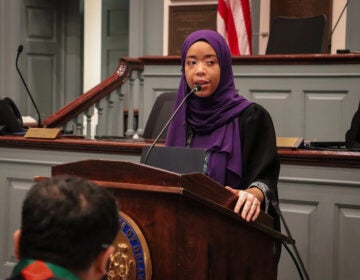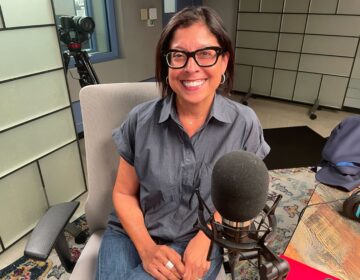Thoughts on a 40th college reunion at Oberlin: What happens when people stop reading newspapers?
Suppose you were invited to a party, with no guarantee that anyone you know was going to be there, but with a guarantee that you would have something in common with every single person there. Would you go? That’s what an invitation to a college reunion is.
I was shocked to find myself assigned the exact same room for reunion that I lived in as a freshman starting in the fall of 1966. Was this someone’s idea of a joke? The only difference I could see after 45 years was the addition of a smoke detector.
My reunion weekend was structured to encourage lots of informal contact among alumni of the three classes in my cluster, 1970, 1971 and 1972. There was an open lounge stocked with refreshments and a kick-off picnic to see who was there. From the variety of cultural offerings on Friday night I chose the Grand Piano Extravaganza described in a separate blog entry.
After Saturday breakfast and conversation at Dascomb dining hall, where I had worked the breakfast line as a server in my senior year, small group discussions on various topics actually served to make introductions among reunion attendees, leading to extended conversations over many activities.
It’s human nature to wonder if a college reunion is going to be fun or not, if there will be people to talk to. My reunion weekend was structured with a variety of activities to choose from where you were constantly bumping into other alumni from your cluster.
Having been a history major I joined a history tour of Oberlin and discovered sites I never knew existed, an old memorial to Oberlin’s civil war dead including those who served in the nation’s first “colored” army units, and a memorial to three Oberlinians who died in 1859 as participants in John Brown’s raid on Harper’s Ferry to try to launch a slave uprising. This monument was erected in 1860, just months after the raid, and before the outbreak of the civil war.
At our closing dinner on Sunday evening, one of our classmates who remained in Oberlin after graduation as a coordinator for student activities, tried to bring us up to date on how Oberlin has changed. He expressed concern that, unlike our own politically active student years, today’s students seem largely unaware of their nation’s continuing wars in foreign countries and efforts to overcome the continuing financial crisis. He attributed this to the fact that most students today do not read newspapers.
Students claim to get their news from on-line websites, but our classmate thought this was probably untrue since they didn’t seem at all aware of current events. Oberlin College is concerned enough about this trend to have arranged a bulk subscription to the New York Times for free distribution to students willing to pick it up.
In my own teaching at Temple Law School in Philadelphia, I have occasionally asked my law students, all college graduates, if anyone has seen the front page story in the Philadelphia Inquirer on an issue we are discussing in class. Blank looks. No one has read it even on-line. What is the future of democracy in the absence of civil discourse on public issues which newspapers have traditionally provided?
Our reunion closes with an Oberlin commencement tradition called “Illumination” where the central square is strung with lanterns, and students, relatives, and alumni meander through the square encountering each other by chance for conversation while listening to live music performances. Though threatening weather prevented the hoisting of all the lanterns, the consensus of all the alumni present was that our reunion was a great success, and that we look forward to the next one.
WHYY is your source for fact-based, in-depth journalism and information. As a nonprofit organization, we rely on financial support from readers like you. Please give today.




